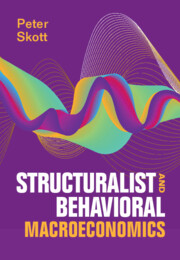
- Cited by 1
-
Cited byCrossref Citations
This Book has been cited by the following publications. This list is generated based on data provided by Crossref.
2024. Books Received (as of March 2024). Review of Radical Political Economics, Vol. 56, Issue. 1, p. 162.
- Publisher:
- Cambridge University Press
- Online publication date:
- November 2023
- Print publication year:
- 2023
- Online ISBN:
- 9781009367349




